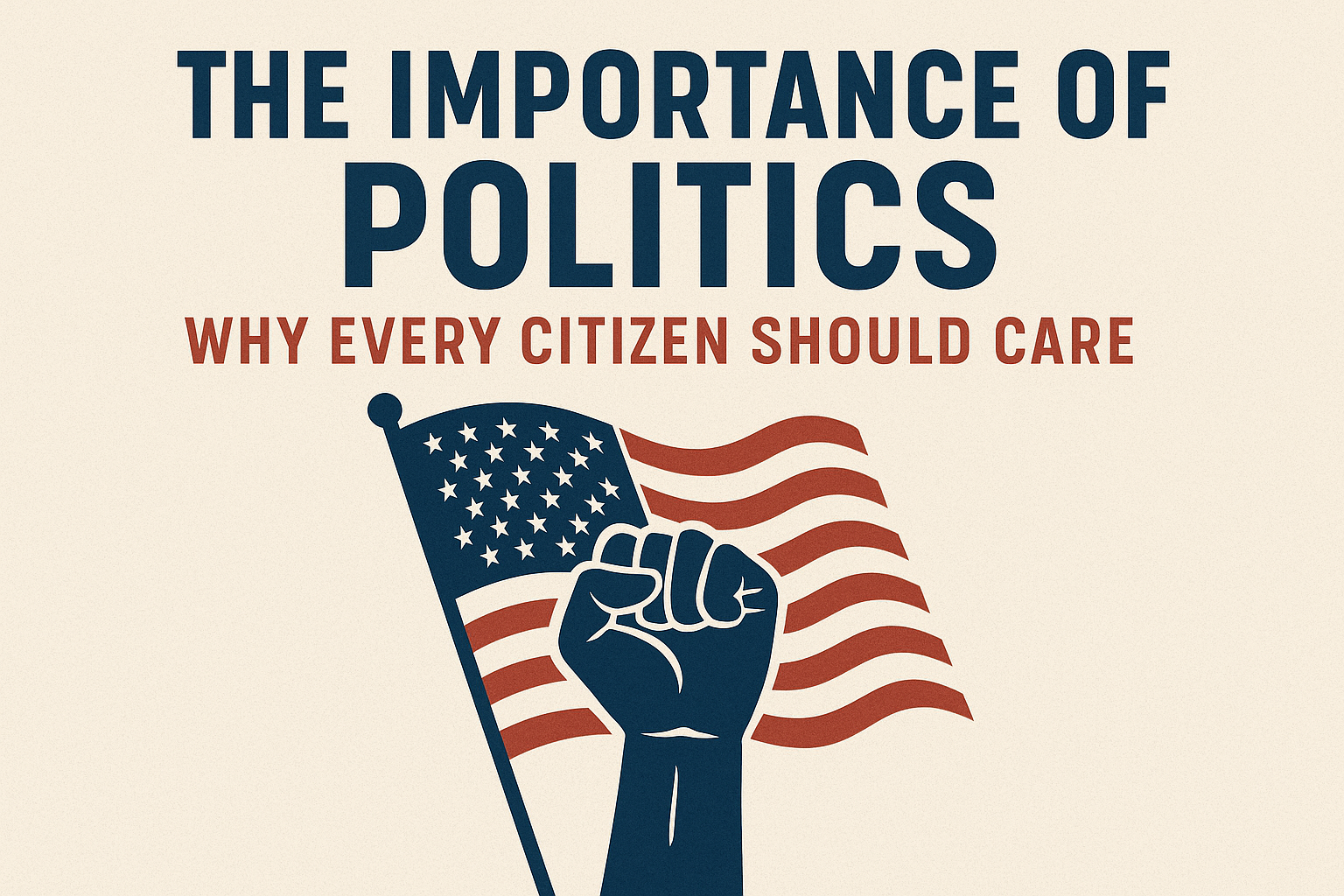The Importance of Politics: Why Every Citizen Should Care
Politics shapes every aspect of our lives. From the taxes we pay to the roads we travel, from the schools we attend to the healthcare we receive—politics plays a central role in how society functions. Yet, many people still see politics as complicated, boring, or corrupt. In reality, understanding and engaging with politics is one of the most powerful ways to create a better future for ourselves and our communities.
In this blog post, we explore why politics is important, how it influences our daily lives, and why every citizen—especially the youth—should take an active interest in political processes.
What is Politics?
Politics is the process of making decisions that apply to members of a group or society. It includes everything from local governance and policymaking to international diplomacy. Political systems determine laws, regulations, and policies that affect your rights, freedoms, economy, education, environment, and security.
1. Politics Affects Daily Life
Everyday decisions—like gas prices, internet regulation, education quality, or public transport—are directly influenced by political decisions. Whether it’s your city council deciding on new infrastructure or national leaders passing economic reforms, these choices affect how comfortably and fairly you live.
Example: If a government increases investment in renewable energy, it reduces pollution and creates green jobs, benefiting both the environment and economy.
2. Politics Ensures Representation
Democratic politics allows citizens to vote for leaders who reflect their values, beliefs, and interests. Participating in elections ensures that your voice is heard and your rights are protected.
“If you don’t vote, you’re letting others decide your future.”
— Unknown
When people ignore politics, they hand over control to others who may not represent their needs.
3. Politics Shapes Social Justice and Equality
Issues like women’s rights, racial equality, LGBTQ+ rights, minimum wage, and access to healthcare are all political matters. Without political activism and reforms, progress in these areas would stall.
Political awareness and participation help fight injustice, protect vulnerable communities, and push for equality in law and practice.
4. Politics Drives Economic and Technological Development
Government policies impact business growth, innovation, taxation, and employment. For instance, a stable political environment attracts investors, improves infrastructure, and boosts job creation.
Startups, agriculture, education, and digital development all depend on supportive political frameworks.
5. Politics Helps Prevent and Resolve Conflicts
Politics isn’t just about power struggles—it’s also about diplomacy, peace, and collaboration. Well-governed societies can prevent violence and promote stability through political dialogue, negotiation, and rule of law.
6. Educated Political Engagement Builds a Stronger Nation
A politically aware and active population creates accountability and transparency in government. Citizens who question decisions, demand reforms, and monitor corruption contribute to building a healthier democracy.
Youth involvement in politics, particularly through social media, activism, and voting, is transforming the political landscape worldwide.
Final Thoughts: Why You Should Care About Politics
In today’s fast-changing world, politics is no longer optional—it’s essential. Whether you’re a student, professional, entrepreneur, or homemaker, political decisions shape your environment, your opportunities, and your future.
Politics isn’t just for politicians. It’s for you, your family, your neighbors, and your community.
So next time you scroll past political news or ignore an election update, remember: politics is power—and when used wisely, it’s the power to change the world for the better.
🔍 Frequently Asked Questions
1. Why is politics important for students?
Students are the future leaders of a country. Politics helps them understand governance, justice, and civic responsibility, empowering them to shape a better society.
2. How can I get involved in politics?
You can vote, join local community initiatives, follow current events, participate in peaceful protests, or join political forums and discussions.
3. Is political awareness necessary?
Absolutely. Being politically aware helps you make informed decisions, protect your rights, and hold leaders accountable.





